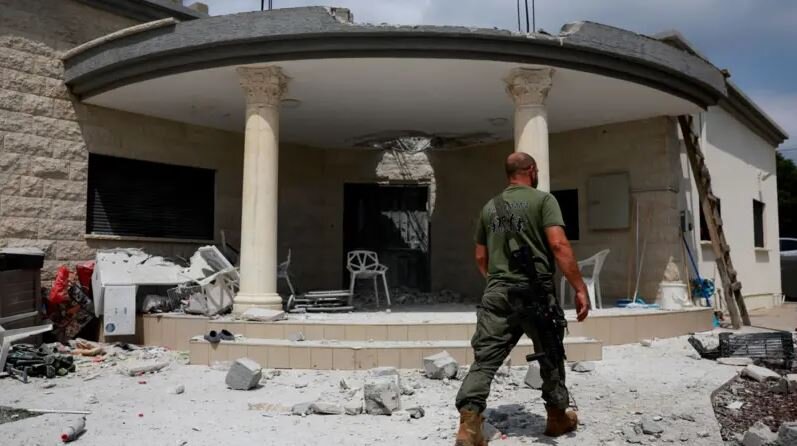Iranian parliament speaker commends Hezbollah for successful retaliation against Israel

TEHRAN – Iranian Parliament Speaker Mohammad Baqer Qalibaf has lauded Hezbollah, the Lebanese Resistance movement, for its decisive and effective military operation targeting Israel’s sensitive military and intelligence sites.
Qalibaf made these remarks in a post on his X account on Sunday, following Hezbollah's large-scale rocket and drone attack on Israeli-occupied territories.
This operation was in direct retaliation for the assassination of Fuad Shukr, a senior Hezbollah commander, who was killed in an Israeli airstrike on a building in the Dahieh suburb of southern Beirut on July 30.
The Lebanese group said in a statement on Sunday that it fired more than 320 Katyusha rockets at 11 Israeli military bases and barracks, including the Meron base and four sites in the occupied Golan Heights.
According to reports from Lebanon’s al-Mayadeen television channel, Hezbollah’s coordinated strike was both accurate and impactful, delivering a strong message to Israel.
The operation, which Hezbollah Secretary General Sayyed Hassan Nasrallah dubbed the "Arbaeen Operation," involved the firing of hundreds of rockets and drones, showcasing the Resistance movement's military capabilities.
Following the operation, Israel’s War Minister Yoav Gallant declared a “special situation” and announced a 48-hour nationwide state of emergency from 6am (03:00 GMT) on Sunday.
Additionally, Israel’s Ben Gurion airport was temporarily closed in the early hours of the morning, while reports emerged of some injuries in northern Israel. The Israeli army also announced a series of restrictions on civilians in northern Israel and the Golan Heights, including the closure of some beaches.
Israel’s Army Radio, citing defense officials, said the military assessed that Hezbollah had been preparing to fire hundreds of missiles into central Israel in an attack planned for 5am.
Qalibaf, in his post, extended his greetings to the fighters of Hezbollah and expressed solidarity with the resilient people of Lebanon, particularly those in the Dahieh region.
He drew a parallel between this recent operation and the 2006 conflict between Hezbollah and Israel, stating, “The Zionist regime’s defeat today is comparable to its defeat in the 2006 operation.”
The 2006 war, a 33-day conflict that began when Israel launched a large-scale military offensive against Lebanon on July 12, ended with Hezbollah successfully forcing Israeli forces to withdraw without achieving their objectives.
World concern that Israel’s war will escalate into an all-out regional conflict multiplied after the assassination last month of Hamas political chief Ismail Haniyeh in Tehran and of Shukr in Beirut, both blamed on Israel.
